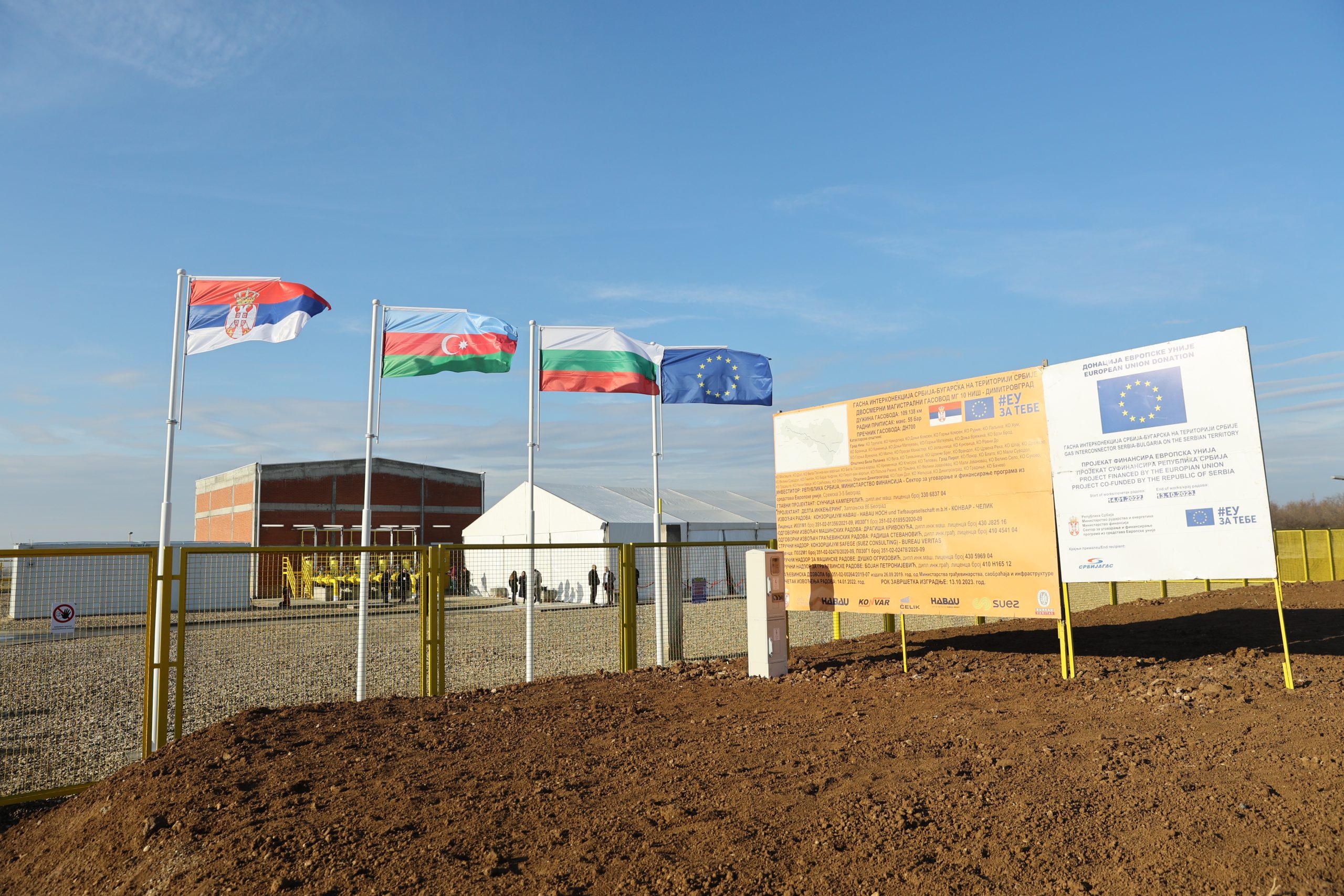Title of the project: Gas Interconnector Serbia-Bulgaria
Start of works on pipeline: 14 January 2022
Completion of construction: December 2023
Financing: The project of building the gas interconnector Niš– Dimitrovgrad – Bulgaria is financed partly through EU grants, in the amount of EUR 49.6 million, as well as EUR 25 million of a favourable loan from the European Investment Bank that Serbia will pay for the part of the gas pipeline passing through Serbia. The Republic of Serbia has allocated EUR 15 million and EUR 7.5 million for preparatory works and the design.
Gas supply is important for citizens and economy. Gas secures partly the heating for homes as well as functioning of numerous industries. Currently, gas is responsible for 13% of Serbia’s primary energy consumption and Serbia can receive it only from two entry points – through the Balkan Stream pipeline and from Hungary. The gas interconnector, connecting gas networks of Serbia and Bulgaria, will boost the diversification of energy sources in Serbia and the Western Balkan region, allowing Serbia more secure and stable supply from different gas network systems, notably from Azerbaijan and to the future LNG Alexandroupoli terminal in Greece that can receive gas from all over the world.
The new gas interconnector connects the existing Serbian network in Niš with the Bulgarian network in the capital Sofia, stretching for 109 km on the Serbian side. With the pipe diameter of 700 mm and maximum pressure of 55 bar, its capacity will allow for the transfer of 1.8 billion cubic metres of natural gas annually, equivalent to 60% of Serbia’s total annual consumption.
Besides Niš, the pipeline includes 3 other gas metering and regulation stations in Bela Palanka, Pirot and Dimitrovgrad. Thanks to this, these three cities and regions of Serbia – their citizens, schools, hospitals, businesses, will have access to gas supply, for heating and industrial production.
Due to a considerably smaller environmental impact and greater flexibility in terms of power production, natural gas comes in as optional transitional fossil fuel towards fully renewable sources. Transition to natural gas would also allow towns and municipalities in Serbia with developed district heating systems to construct high-efficiency, small-scale combined heating and power generating systems.
The European Union is the biggest donor of the energy sector in Serbia, with investments exceeding EUR 1 billion in grant funds since 2000. In 2023, the EU provided Serbia with the Energy Support Package of EUR 165 million in order to help citizens and small and medium-sized enterprises dealing with the increasing energy prices and green energy transition. Additionally, EUR 31 million was approved for the construction of new wind farm Kostolac (KfW loan EUR 81.8 million) and EUR 16.1 million for the reconstruction of hydro power plant Vlasina (EBRD loan EUR 61.6 million).
More information
- More Choices – Better Security
- A Growing Connection
- EU and Serbia in Energy sector
- Ambassador and Minister visit to the gas interconnector
- New Gas Supply Option for Serbia: Pipeline Niš-Sofia Additional Financing Secured
- Western Balkans in Energy Transition
- EU Finances Better Gas Supply for Serbia: New Pipeline Niš-Sofia Construction Tender Published

